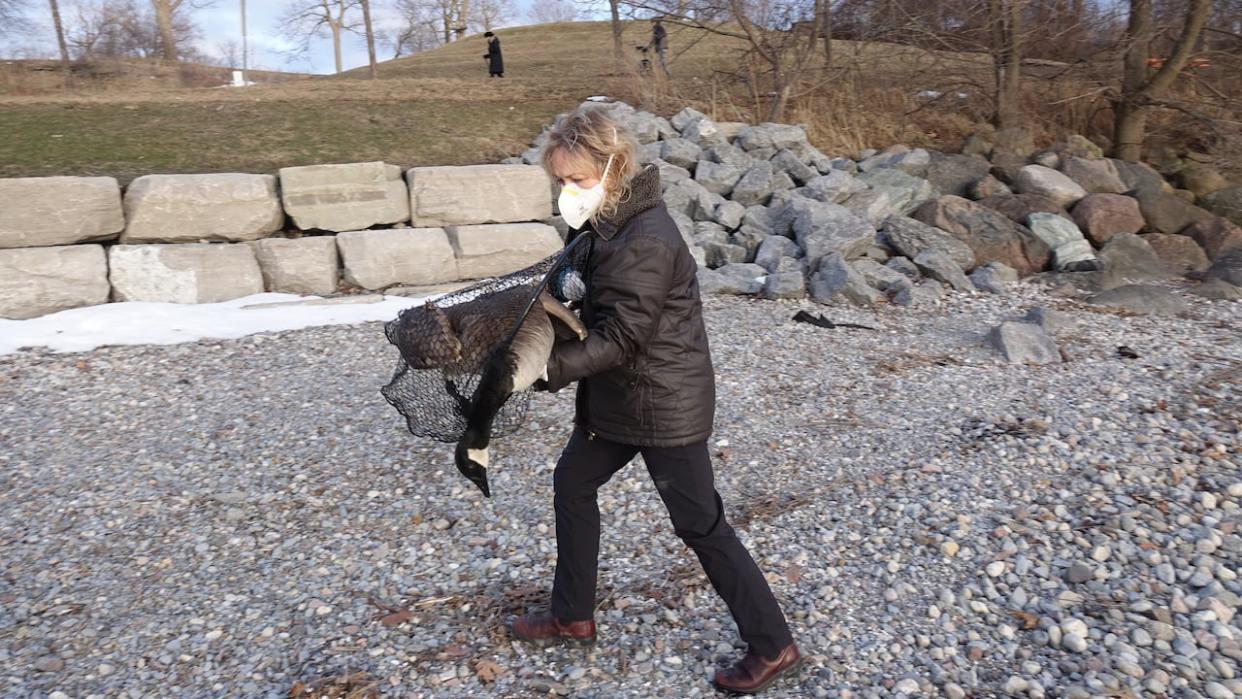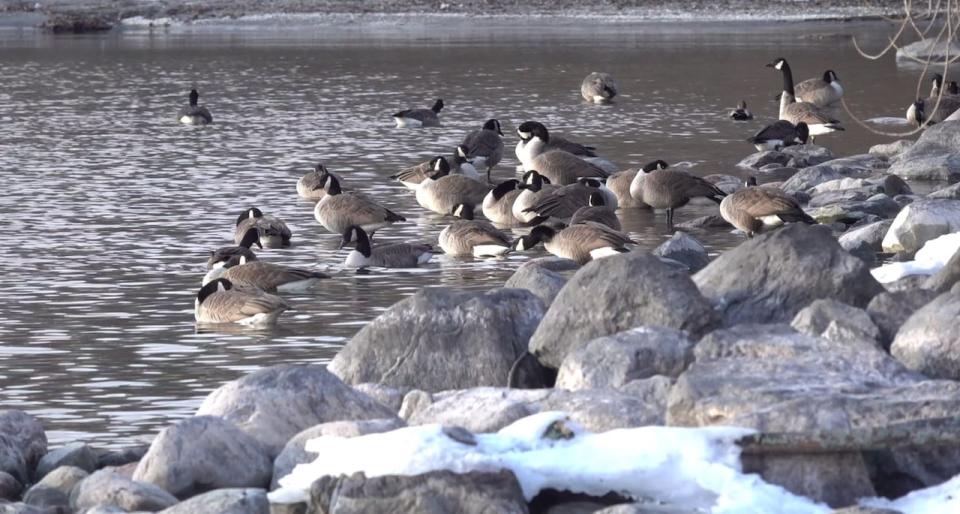'High likelihood' avian flu behind Kingston geese deaths, says expert

A wildlife expert says it's likely an outbreak of avian influenza killed about 30 Canada geese in Kingston, Ont. this week.
In a news release issued Friday, the city said it investigated "deceased and distressed Canada geese" found recently in Lake Ontario Park, just west of Kingston's downtown.
"Staff observed signs of sickness and the presence of approximately 30 dead birds," according to the release.
Reports started coming in several days ago about dead geese, according to Paulanne Peters, a volunteer with Sandy Pines Wildlife Centre.
Within the last two days, however, the number of dead geese has ballooned, Peters said.
"This has come on so quickly," she said. "In the past two days so far, we've only seen geese [affected]. We're hoping this is a very isolated incident."

Canada geese gather at Lake Ontario Park in Kingston on Friday. About 30 geese have been reported to have died over the past few days. (Dan Taekema/CBC)
Peters has been bringing the geese back to the centre where they're treated, but she says many have died in their care.
"It's difficult, because we know that when they go into Sandy Pines, they're not coming out," she said.
"There's lots of happy stories with Sandy Pines, for sure, but this is just one of those occasions where, you know, we're just trying to stop the suffering as quickly as possible."
Test results within 2 weeks, says pathologist
While the illness hasn't yet been confirmed, wildlife pathologist Brian Stevens says it's quite probable the birds were infected with avian influenza.
"It's a high likelihood," said Stevens, who works for the Canadian Wildlife Health Cooperative, which has been testing samples for Environment and Climate Change Canada.
"Since we've had this highly pathogenic form of avian influenza here in North America, this is the typical event that we see."
There are clear warning signs, he said, when spotting sick birds.
"They'll have symptoms consistent with neurological signs," he said. "Sometimes they will have seizures, sometimes they'll be stumbling to walk, shaking their head and just seem a little bit off."
Stevens said he expects test results back within two weeks.
He also warned that avian influenza can spread easily among birds and can be particularly concerning for poultry farms.
"If you do have poultry, make sure you have strong biosecurity because the virus ... can be extremely dangerous and cause mass mortality."

Peters says the outbreak happened quickly, and that many of the infected geese have died in their care. (Dan Taekema/CBC)
Be careful, city urges
While there are "rare occasions" of humans falling sick from avian influenza, the disease isn't a significant public health concern for healthy people who aren't in regular contact with infected birds, according to the Canadian Food Inspection Agency.
For birds that are ill, there's no treatment, the agency said.
The City of Kingston is recommending anyone who comes across a sick or dead bird to report it to the Canadian Wildlife Health Cooperative or the Sandy Pines Wildlife Centre.
The city is asking residents not to handle sick, injured or dead birds, but if it's necessary, people should cover their hands with gloves or double plastic bags. They should avoid touching the bird's bodily fluids and wash thoroughly afterward, the city said.
Pet owners are also being asked to keep their cats indoors and their dogs leashed.


